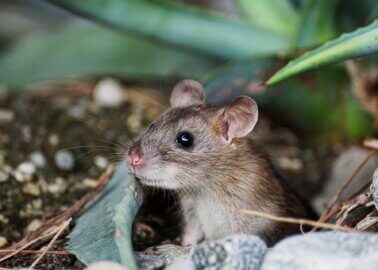In Defence of the Seagull
Seagulls have been in the news recently after David Cameron claimed a “big conversation” is needed because of some reports of aggressive behaviour by these birds in Cornwall.

We’ve just written to local councils in Cornwall and Devon, offering them advice and urging them to stick to humane methods to keep their bird population under control. After all, gulls are intelligent, sensitive birds who, like all wild animals, just want to feed themselves, find somewhere safe to live and protect their young.
Gulls are resourceful in adapting to new situations and learning new types of behaviour, such as breaking open hard-shelled molluscs by dropping them onto rocks. They also mate for life and are devoted parents. And across the country as a whole, their numbers are dwindling. They don’t deserve to be demonised.

Sometimes, living peacefully alongside gulls may require some form of bird control in urban areas. By far the most effective measures over the long term are the implementation of deterrents and the curtailing of food sources.
These are some of the humane solutions we’ve been suggesting to town councils:
- “Flock Off!” paint can be painted onto lamp posts in areas which you’d prefer to keep gull-free. The paint reflects the sun’s rays, making it difficult for the birds to see and thus deterring them from swooping down or trying to land.
- Bird slides or coils are an easy, low-cost way to discourage gulls from nesting on ledges.
- If birds have begun to roost somewhere particularly inappropriate, a green laser can be used to encourage them to find an alternative spot.
Given the decline in gull numbers across the country and the numerous hazards that they face because of human activities, kind people should be helping them, not planning to wipe them out. Gulls can get hurt when they collide with buildings and traffic, get their beaks caught in fishing hooks or choke on pieces of plastic, and they are sometimes even deliberately attacked by callous individuals.
Here’s what to do if you find an injured seagull:
- Phone the RSPCA in England and Wales (0300 1234 999), the SSPCA in Scotland (03000 999 999) or the USPCA in Northern Ireland (028 3025 1000). They will often be able to send someone to collect the bird within an hour. If you have a car, you could also drive the bird to your nearest centre yourself. Some local wildlife sanctuaries can also help with the rescue of injured birds.
- If it’s safe to do so, try to contain the gull. Prepare a cardboard box by lining it with newspaper or a towel and making sure that it’s well ventilated with plenty of air holes.
- Gently place a soft towel over the bird’s head before carefully lifting him or her into the box to protect yourself from pecks. Frightened animals can often lash out, so make sure you keep your face well away from the bird’s beak.
- Darkness will help reduce the bird’s stress, so try to cover the top of the box once the bird is inside.
- Wash your hands thoroughly after handling the bird.
Given the many humane solutions to perceived problems with gulls, it’s easy to keep the peace with these iconic seaside birds. Please speak out in favour of humane gull-management programmes in your community, and don’t hesitate to help birds in distress.



